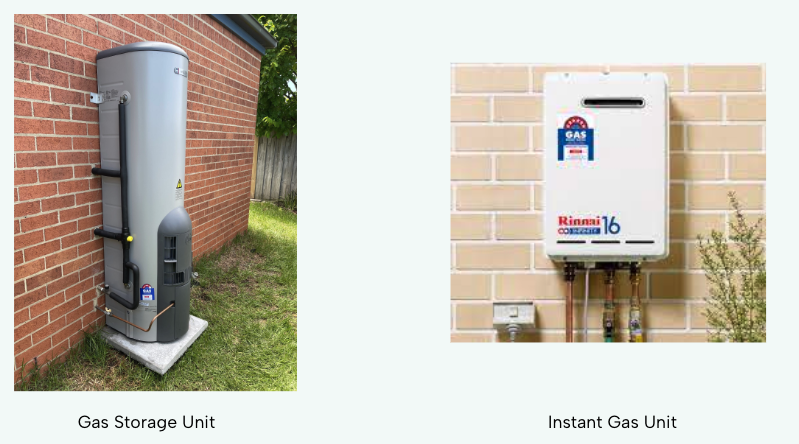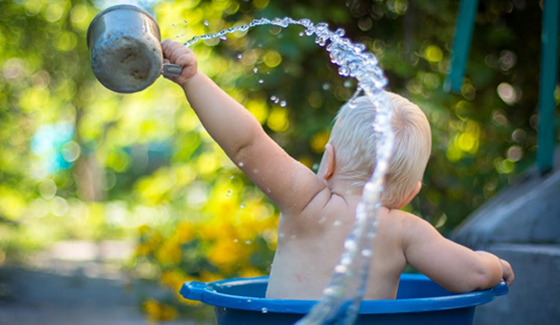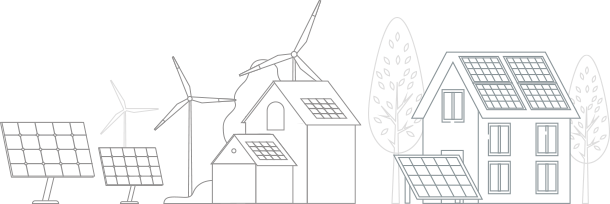There are an estimated 9.3 million households in Australian, with 2.6 million of those in Victoria. In our view, the question for each and every one of these households will not be “should we switch to heat pump hot water”, but “when?”
The answer for each of these households will depend on a number of factors, which we discuss in this article.
The best place to start is our calculator on our home page. The calculator takes your inputs including the number of people at your home, your current hot water service, whether you qualify for the Victorian government rebate, whether you have solar and if your gas hot water is your last remaining gas appliance. It then calculates an estimate of your current running costs, running costs if you were to use heat pump hot water and helpful financial output like yearly savings, the time it takes to make the cost of a new unit back and the projected internal rate of return. Please feel free to play around with the calculator – you’ll see some scenarios make clear financial sense, while others do not.
There is one key message to take away from this article: you need a plan. The most crucial thing is to have a plan for switching from your gas hot water service. Unfortunately it’s all too common to have a hot water unit fail, the owner needs a solution quickly and the easiest option is to replace it with another gas hot water unit. You’re then effectively signed up to gas for another ten years and exposed to increasing gas prices. Every time a gas hot water unit dies is a perfect opportunity to have it replaced by a more efficient, cost effective heat pump hot water unit. But, as we recently heard, “no one likes to be cold, naked and wet,” so it’s important that people consider switching before a unit dies, or at least have a plan to move quickly when it does.
Considerations
The key variables around when to switch to heat pump hot water are:
-
- The age of your current hot water tank – it makes more sense to look at switching sooner if your current unit is 15 years old rather than if it’s 5 years old. Gas storage and electric storage units typically last 8 to 12 years. Instant units can last up to 20 years.
- Sensitivity to cold showers – how would you feel if you’re stuck without hot water for a couple of days, one week, longer? I’d be fine, I don’t mind a cold shower (apparently they are good for you), but my wife wouldn’t be so happy!
- Rebate – the $1,000 Victorian government rebate can make a big difference to the upfront cost
- Last gas appliance – if your gas hot water unit is your last gas appliance, removing it will also allow you to remove the gas connection to your property, saving you the daily gas service fee (around $350 per year) charged by gas retailers.
- Solar – heat pump hot water units are cheaper to run even when using electricity from the grid. If your house has solar, the running costs are lower still thanks to free electricity
Gas Hot Water Units
There are two types of gas hot water units: storage and instant.

Gas Storage Units
A gas storage unit is also known as a gas powered hot water tank. Gas is burnt to heat water stored in a tank. As hot water is used in the home, the tank is refilled with cold water and continually heated. Gas storage units are inefficient and the cost of operating them will increase in line with gas prices over the next decades as gas is phased out.
Sustainability Victoria estimates savings of around $345 ($290 vs $635) for a four person home when switching from gas storage to heat pump hot water. But, at a cost of around $3,200 for a new heat pump hot water unit, it doesn’t always make financial sense to switch straight away.
Recommendation: we recommend you consider replacing gas storage units as they approach 8 to 10 years of age. While it’s possible the unit might last another 5 years, we think it’s best to be prepared.
Gas Instant Units
“Instant” gas or “continuous flow” hot water units heat water on demand. The units heat water quickly as hot water is required inside the home. Instant units are more efficient than storage units as they only heat water on demand. Storage units continually heat water to maintain a desired temperature, so there is always hot water available.
A number of Powrhouse customers remark that “instant” hot water units are not instant. It takes a little time to heat the water and deliver into the house, longer than if the water is already hot and available. This can be more noticeable in larger houses where the water has further to travel.
Sustainability Victoria estimates savings of around $200 per year ($290 vs $490) for a four person home when switching from instant gas hot water to heat pump hot water. We would have thought that instant gas hot water might be cheaper to run where usage is low, say for a one person household. Interestingly, Sustainability Victoria still estimates savings of $130 per year ($125 compared to $255).
Recommendation: we recommend you consider replacing instant gas units as they approach 15 years of age.
Electric Hot Water Units
Electric hot water units look very similar to gas storage hot water units. The easiest way to think of them is a big kettle. They contain a resistive element which is submerged in water, heats up and heats the water in the tank.
While electric hot water units are powered by electricity and are therefore capable of being green, they are horribly inefficient. Sustainability Victoria estimates that electric hot water units are the second most costly hot water service to run, only behind gas hot water units powered by LPG (gas delivered in a bottle, like your barbecue). Sustainability Victoria estimates savings of around $815 per year ($290 vs $1,105) for a four person home when switching from electric hot water to heat pump hot water.
Recommendation: given the significantly higher running costs, we recommend changing from electric hot water units to heat pump hot water immediately. There are two exceptions. The first is if the electric hot water unit is less than three years old and you are otherwise eligible for the Victorian government rebate (units to be greater than three years old to be eligible). The second is if you have solar, are exporting excess solar and can otherwise redirect it to the hot water tank. In this case the difference is not as great, you’ll just receive less credit on exported solar, which is quickly diminishing anyway.
Summary
The recommendations above are based on a default scenario where we are looking at gas hot water units in isolation. If you have solar, are eligible for the rebate and if your hot water unit is your last gas appliance, these factors point to making the switch sooner.
Please don’t hesitate to contact Tim on 0401 324 961 or fill out the Contact Us form if you are interested in discussing your heat pump hot water options.


 Subscribe to Our
Subscribe to Our